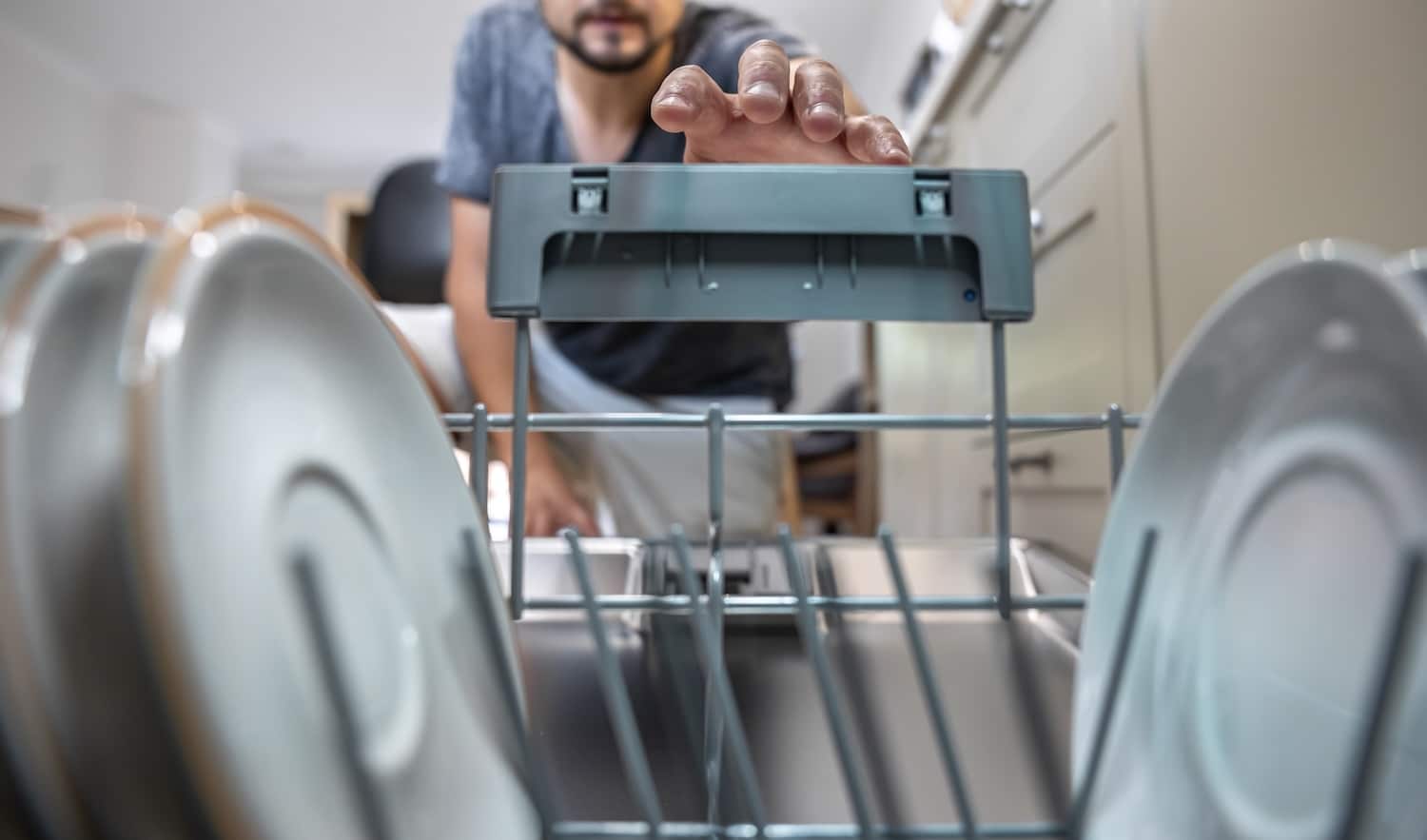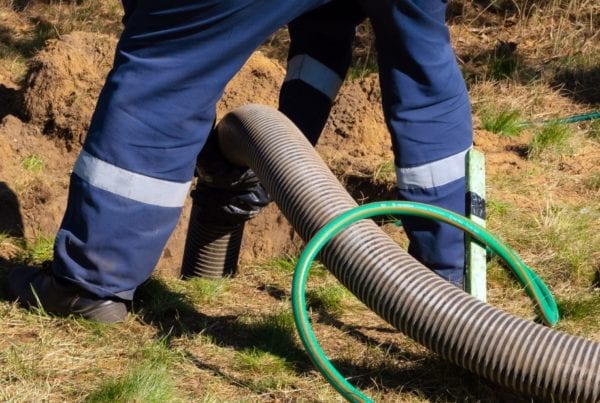
Your dishwasher is supposed to clean, not smell. But if your dishwasher smells even after you’ve scrubbed it down, you’re not alone. This is a common issue that many homeowners run into, and it usually means there’s something deeper going on than just surface grime.
In this post, we’ll walk through the most common causes of lingering odors, how to fix them, and when it’s time to bring in a professional.
Why Your Dishwasher Still Smells
1. Hidden Food Gunk
Even after a normal cleaning cycle, bits of food can stay trapped in the filter, spray arms, or around the door seals. Over time, this debris starts to rot and create that musty, sour smell.
What to do:
- Pull out the bottom rack and remove the filter. Rinse it under hot water and scrub it gently with a toothbrush.
- Use a toothpick or pipe cleaner to unclog tiny holes in the spray arms.
- Wipe down door gaskets with a cloth and soapy water.
This kind of buildup can be tough to spot, but a thorough clean usually makes a big difference.

2. Clogged Drain Hose or Garbage Disposal
Your dishwasher drains into the same pipe as your kitchen sink. If the drain hose is blocked or your garbage disposal is jammed, dirty water can back up—and bring smells with it.
Check for:
- Standing water in the bottom of your dishwasher
- Slow-draining sink or foul smells coming from the disposal
If you notice any of these signs, try running the garbage disposal or snaking the drain. Still having issues? It might be time for a deeper look at your plumbing.
3. Mold and Mildew
Dishwashers are warm and damp, which is basically a perfect place for mold to grow. Mold often hides in the seals, around the detergent door, or even in the filter system.
Try this simple mold-fighting clean-up:
- Run an empty cycle with a cup of white vinegar on the top rack
- Sprinkle baking soda on the bottom and run a second short cycle
- Leave the door cracked open between uses to help it dry out
Even if a dishwasher looks clean, a faint mildew smell could mean mold is hiding out of sight.
4. Standing Water
If water isn’t draining properly after each cycle, it can sit at the bottom of your machine and cause a stale odor.
This could be due to:
- A blocked drain
- Kinked or clogged hose
- Failing drain pump
Try removing the water manually and checking for blockages. If the issue keeps happening, professional help may be needed.
A Simple Deep-Cleaning Routine
To keep smells at bay, do a full deep clean every month:
- Remove racks and the filter
- Scrub all parts with hot water and dish soap
- Run a vinegar cycle (top rack)
- Follow with a baking soda rinse (bottom of tub)
- Wipe down the door, seals, and buttons
This routine keeps your dishwasher fresh and working efficiently, and it only takes about 30 minutes.

How to Prevent a Dishwasher Smell from Coming Back
A few smart habits can go a long way:
- Rinse before loading: A quick rinse removes large food scraps that might get stuck in the filter.
- Clean the filter weekly: Just a quick rinse under the sink can help avoid buildup.
- Air it out: Leave the door cracked after each wash to let moisture escape.
- Use the right detergent: Low-quality soap can leave behind residue that feeds bacteria.
Other Recommended Maintenance
43% of homeowners neglect to clean their dishwasher’s drain or filter, leading to odor issues.
Dishwashers are often overlooked during routine home care, but they can cause issues if ignored. Here are a few things to keep in mind:
- Inspect for leaks under the unit, especially around hoses
- Check seals and gaskets for wear, mold, or cracks
- Listen for strange noises—grinding or rattling could point to failing parts
- Run a cleaning cycle monthly with dishwasher-safe products
Staying on top of small maintenance tasks keeps your dishwasher running longer and helps you avoid bigger repair bills.
When to Call a Professional
If your dishwasher still has a smell after you’ve deep cleaned it, checked the drain hose, and tried all the DIY fixes, it could point to a bigger issue beneath the surface. Sometimes, persistent odors are a sign of:
- Plumbing problems like a blocked or improperly installed drain line
- Hidden mold growth behind or beneath the dishwasher
- Water leaks that aren’t immediately visible but can lead to damage over time
These aren’t just dishwasher issues. They could indicate broader concerns in your home’s plumbing or structural systems.
At this point, it’s smart to bring in a qualified home inspector who can assess the situation more thoroughly.
An inspection can reveal if the odor is caused by something more serious, like water intrusion, mold, or ventilation issues affecting not just the appliance but the surrounding area.
Conclusion
A dishwasher that smells even after cleaning is a sign something’s not right under the surface. Whether it’s food buildup, mold, or a drainage issue, the sooner you tackle the root cause, the better.
Keep up with regular cleaning and don’t ignore warning signs. And if that smell just won’t go away, it may be time to call in an expert.
Alpha Building Inspections offers thorough home inspections that can uncover hidden appliance problems, mold risks, and plumbing issues before they lead to more.
Schedule your inspection with us today.



